It has started
Adelina Marini, March 18, 2011
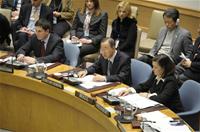 After intense weeks of negotiations on March 17th the UN Security Council approved a resolution, authorising the use of force in Libya, aimed at protecting the civilian population especially in the eastern city of Benghazi, where colonel Muammar Gaddafi threatened to storm the city and that he would not "have mercy" towards the rebels. Resolution 1973 has been approved with the abstentions of China, Russia, Brazil, Germany and India, who before that were against any military intervention in Libya. Besides, the Council authorised the imposition of a no-flight zone over Libya, including a ban on all flights, except those with humanitarian purposes.
After intense weeks of negotiations on March 17th the UN Security Council approved a resolution, authorising the use of force in Libya, aimed at protecting the civilian population especially in the eastern city of Benghazi, where colonel Muammar Gaddafi threatened to storm the city and that he would not "have mercy" towards the rebels. Resolution 1973 has been approved with the abstentions of China, Russia, Brazil, Germany and India, who before that were against any military intervention in Libya. Besides, the Council authorised the imposition of a no-flight zone over Libya, including a ban on all flights, except those with humanitarian purposes.
The resolution also calls for the Arab League, which was the first international organisation to approve the imposition of the restrictive no-fly zone, to cooperate with the rest of the members of the world organisation when the necessary measures are applied. This was one of the three conditions the West had in order to intervene in the Jamahiriya: a demonstrable need of interference, respective resolution of the UNSC and regional cooperation.
In the last few days the supporters of military actions increased their pressure by even accusing the international community for the deterioration of the situation in the country, since its leader Muammar Gaddafi not just refused to step down but increased his military response against the rebels. With army's help Gaddafi managed to return control in several key cities, taken over before that by the opposition, and reached Benghazi. Then he threatened that the army would go "door by door" and would not have mercy. Only those who voluntarily laid their arms down would be spared, the Libyan leader said.
According to western media reports the Libyan national council, recognised by the European Union as the legitimate power in the country, has for a long time called for military actions but President Barack Obama is cautious for which he is being heavily criticised at home. The most vehement defenders of direct actions are British PM David Cameron and French President Nicolas Sarkozy who were in the centre of the agreement of a common European position.
The European Union was fast to welcome the UN resolution. In a statement European Council President Herman Van Rompuy and High Representative for Foreign Policy Lady Catherine Ashton again call on colonel Gaddafi to relinquish power immediately and Libya to start a transition toward democracy through a broad-based dialogue. Both emphasize the important role of the Arab League and Europe's Arab partners. "Their cooperation is essential and their role is clearly recognised by the Resolution. We must ensure that we continue to coordinate closely, together with the United Nations, the Arab League, the African Union and other international partners".
The United States also hailed the resolution. A little after its endorsement Washington's permanent representative said that the document was a good basis appropriate actions to be undertaken so that Gaddafi is forced to seize violence against his own people. He, however, refused to go into details on the planned American military participation. It was clear yet last week that NATO was concentrating maritime "assets" in central Mediterranean. The Pact's Secretary General Anders Fogh Rasmussen refused to comment on the assets but said that their purpose was the Alliance to "be prepared as much as possible for any scenarios".
Responding to a question related to the arguments of the countries that voted abstentions that this resolution would only exacerbate rather than mitigate the situation on the ground, ambassador Rice said: "Well our response is that the Council 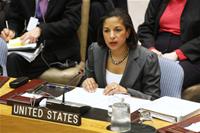 today acted in response to a strong request by the League of Arab States. This resolution was supported by the African members of the Council, by Lebanon, by a strong majority of the Council who agreed that the situation had become so grave that the provisions of 1970 [the previous resolution] had been flouted so dramatically and that the people of Libya were under imminent threat and continued risk of violence".
today acted in response to a strong request by the League of Arab States. This resolution was supported by the African members of the Council, by Lebanon, by a strong majority of the Council who agreed that the situation had become so grave that the provisions of 1970 [the previous resolution] had been flouted so dramatically and that the people of Libya were under imminent threat and continued risk of violence".
Given the bitter experience, especially of the US in Iraq and NATO's in Afghanistan, the West was determined to refrain from any actions without the unambiguous consent of the UN Security Council, and without the support of the Arab League and the African Union. The other reason for European Union's and US's wish the support for interference to be as broad as possible is that the two blocks believe that the democratic "awakening" in North Africa and the Middle East should not be undermined by doubts that the uprising was organised from the outside.
British PM David Cameron called an urgent cabinet meeting where next steps were discussed. A little while after Mr Cameron pointed out before the House of Commons that Britain would do its part by participating in the imposition of the no-fly zone with surveillance airplanes, air-to-air fueling planes and combat planes. There was an urgent meeting of the French cabinet too.
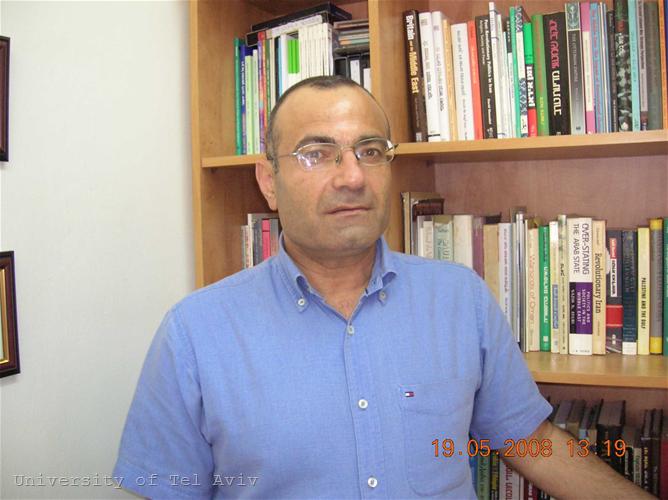 | © University of Tel Aviv
| © University of Tel Aviv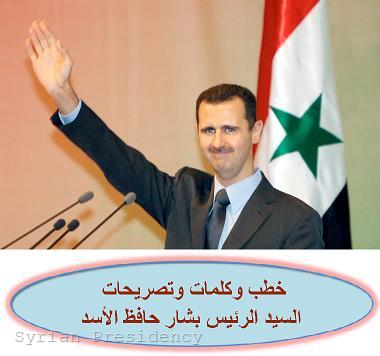 | © Syrian Presidency
| © Syrian Presidency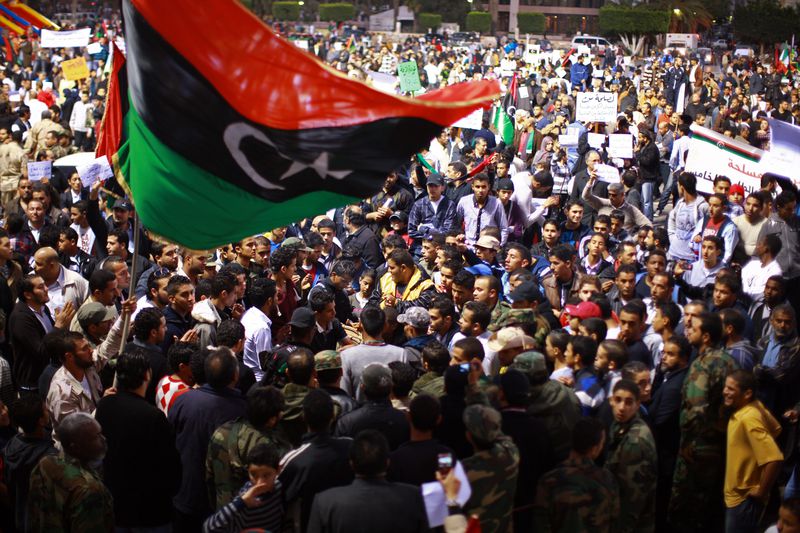 | © UN
| © UN